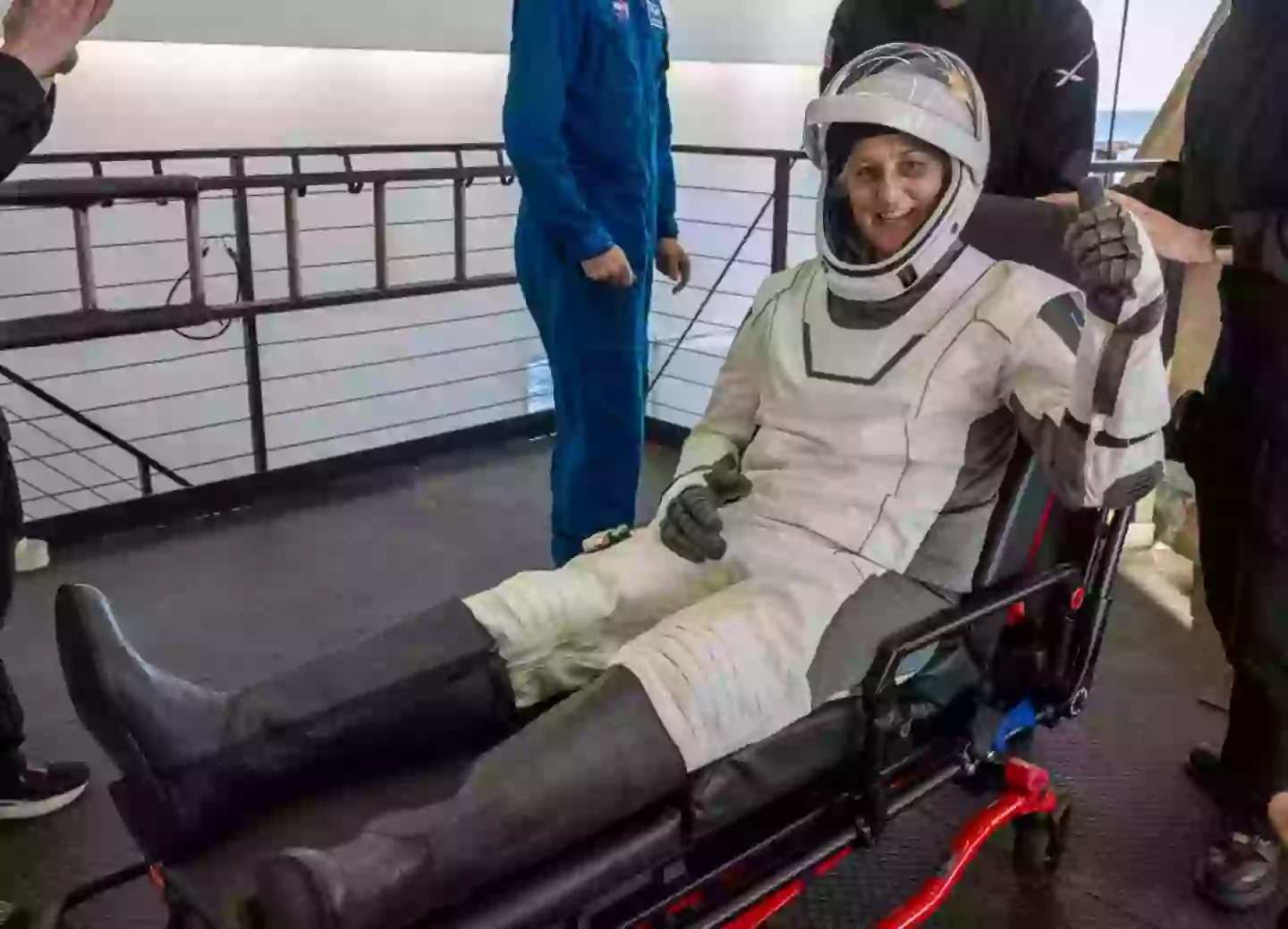
Suni Williams and Butch Wilmore are back on Earth, but their 286 days in space may have taken a serious toll on their health.
The two NASA astronauts landed off the Florida coast last night (18 March) and were greeted by the rescue squad - as well as some curious dolphins.
They were carried out on stretchers and now face a long recovery process as they readjust to life under Earth’s gravity.
Advert
Returning astronauts tend to undergo medical evaluations to help them regain balance and muscle strength for everyday tasks like walking and standing upright.
However, Williams and Wilmore’s worrying health was first noticed when photos of their noticeably 'gaunt' appearance were released.
NASA quickly dismissed claims and reassured everyone that they were fine in the International Space Station (ISS). But there could be further health risks down the line.

Advert
Speaking to Fox News, SpaceX founder Elon Musk spoke about the potential health issues the pair could face after exceeding what’s considered the 'safe' amount of time in space.
The tech billionaire explained that the 'normal amount of time that astronauts are supposed to be in zero-G [gravity] is three months' with the most being 'six months.'
He said: "They were up there for almost 10 months, so that's really gone beyond what is healthy or good."
Musk added that things could have gotten a 'lot worse' if they had stayed up there for more than a year.
Advert
But, considering they were up there for almost 10 months, they will likely need support and monitoring as they readjust to life with gravity.
According to NASA, astronauts can face different health problems - from weaker bones and muscles to vision issues and 'baby feet' - as their bodies adjust back to the planet’s gravity.

The news reporter also discussed the risks of osteoporosis as the astronauts' bones become 'about 1% less dense for every month that they are in space.' Not to mention that astronauts also get taller in space due to their 'spinal column expanding' but once they return to Earth, it contracts again which can lead to back issues.
Advert
Additionally, due to long-term radiation exposure, astronauts can be at a heightened risk of radiation sickness, cancer, central nervous system effects and degenerative diseases, NASA described.
"In low earth orbit where the ISS is, astronauts are at least partially protected by the magnetosphere that protects Earth from the radiation exposure of deep space," noted Dr. Rihana Bokhari, acting chief scientific officer at Baylor College of Medicine's Translational Research Institute for Space Health.